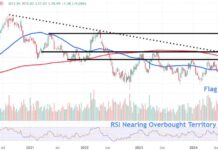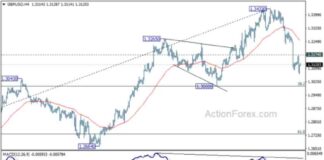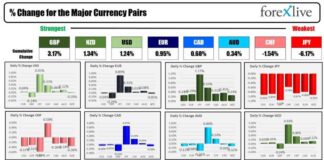The European Central Bank (ECB) has recently issued a warning about the possibility of negative growth in the Eurozone economy. Olli Rehn, a member of the ECB’s governing council, has expressed his support for a rate cut in September to counter the potential economic slowdown. This news has prompted concerns among investors and analysts about the future of the Eurozone economy and the impact it may have on financial markets.
The Warning Signs
Rehn’s warning about negative growth in the Eurozone comes at a time when the region is already facing economic challenges. The ongoing trade tensions between the United States and China, as well as the uncertainty surrounding Brexit, have weighed heavily on the Eurozone economy. In addition, the manufacturing sector in the Eurozone has been contracting for several months, indicating a slowdown in economic activity.
Rehn’s comments highlight the ECB’s concerns about the economic outlook for the Eurozone. He emphasized the need for proactive measures to support the economy, including a potential rate cut in September. This move would aim to stimulate economic growth and prevent the Eurozone from slipping into a recession.
The Impact on Financial Markets
The prospect of a rate cut by the ECB in September has already had an impact on financial markets. The Euro has weakened against major currencies, reflecting concerns about the Eurozone economy. Stock markets in Europe have also reacted to the news, with some indices experiencing declines in response to the warning from Rehn.
Investors are closely monitoring the situation in the Eurozone, as any further signs of economic weakness could lead to increased volatility in financial markets. The potential rate cut in September is seen as a crucial decision by the ECB to support the economy and prevent a deeper downturn.
Expert Opinions
Several economists and analysts have weighed in on Rehn’s warning and the potential rate cut by the ECB. Many agree that a rate cut is necessary to stimulate economic growth in the Eurozone and prevent a recession. However, there are also concerns about the effectiveness of monetary policy in the current economic environment.
Some experts argue that fiscal stimulus from Eurozone governments is also needed to support the economy, in addition to monetary policy measures. They suggest that a coordinated effort between monetary and fiscal authorities is crucial to address the challenges facing the Eurozone economy.
In conclusion, the warning from ECB’s Rehn about negative growth in the Eurozone and the potential rate cut in September highlight the challenges facing the region’s economy. Investors and analysts are closely watching developments in the Eurozone, as they assess the impact on financial markets and the broader economic outlook. The ECB’s decision in September will be closely scrutinized for its potential to support economic growth and mitigate the risks of a recession in the Eurozone.

















